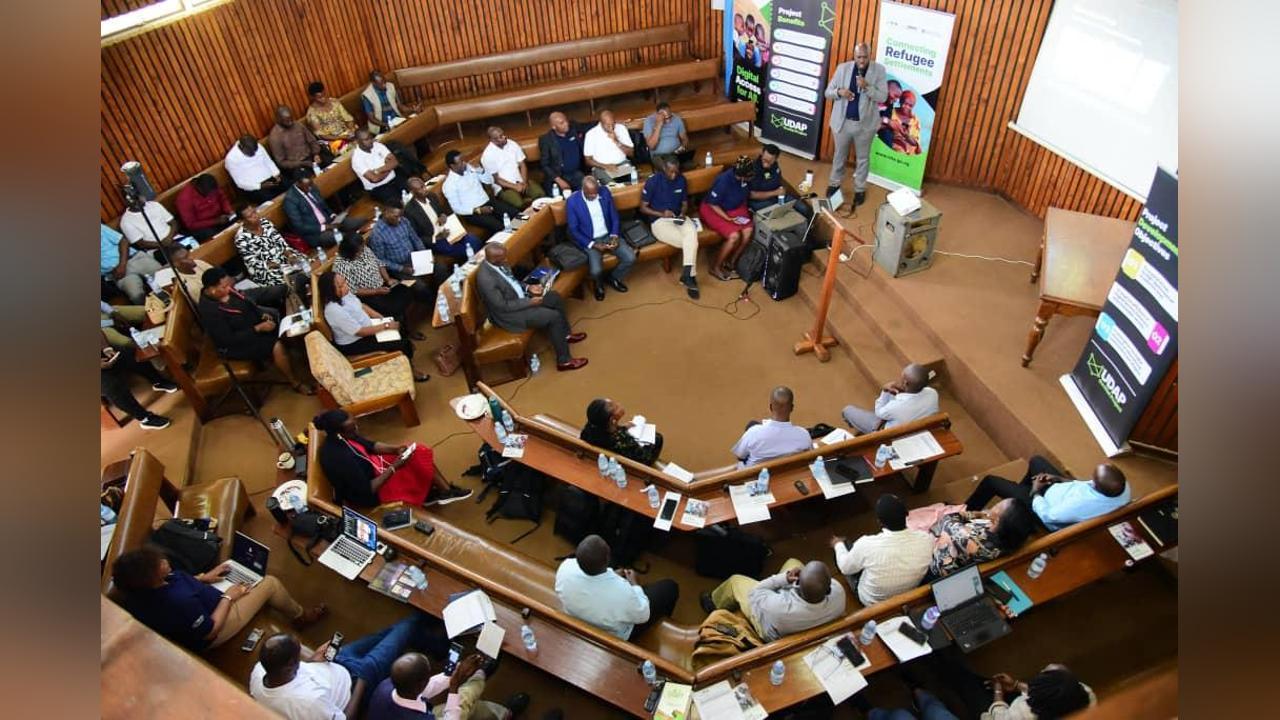Africa-Press – Uganda. The National Information Technology Authority Uganda (NITA-U) has begun rolling out enhanced digital services and internet connectivity in refugee settlements and surrounding host communities as part of the Uganda Digital Acceleration Project.
Implemented in partnership with the Ministry of ICT and National Guidance and funded by the World Bank, the project seeks to bridge the digital divide in underserved areas, particularly those hosting refugees.
It is a key component of the Uganda Digital Acceleration Project – GovNet, aimed at expanding high-speed internet access, strengthening digital government services, and boosting national cybersecurity.
Speaking during a regional engagement with district leaders in Mbarara on Tuesday, Richard Obita, Director of Technical Services at NITA-U, said the programme will deliver about 80 telecommunications masts to 13 refugee-hosting districts over the next two years.
“We have done a study to analyse the gaps in mobile broadband technology. We’re now working to deliver about 80 masts across the refugee and host communities,” Obita said.
He added that these masts will be supported by a backbone of fibre optic cables and complemented with Wi-Fi hotspots and shared digital services to ensure widespread connectivity.
The project, he said, will provide an opportunity for young people to access the internet and develop skills in a digital economy.
Pauline Irene Abina, the Refugee Desk Officer for southwestern Uganda, underscored the scale of the challenge, especially in large settlements such as Nakivale in Isingiro District.
She noted that a single telecentre cannot adequately serve expansive areas and called for more zonal-based connectivity models.
“Most of the settlements have poor network coverage. Some areas can’t even communicate,” Abina said.
“One telecentre may work in smaller settlements like Oruchinga, but Nakivale is vast. We need to narrow down to administrative units within the zones and engage community leaders for proper sensitisation.”
Obita assured stakeholders that NITA-U has mapped out the required infrastructure in collaboration with the private sector and that the deployment will be comprehensive.
“We’ve done the mapping and will work with telecom partners to fill the gaps. This isn’t just about infrastructure—it’s about delivering reliable, accessible services,” he said.
The project also places a strong emphasis on inclusion, aiming to provide all community members—regardless of location—with access to digital services.
Local officials welcomed the initiative, noting that despite the presence of around 5,000 telecom masts countrywide, many communities remain underserved.
Michael Muhoozi, the Deputy Resident District Commissioner for Mbarara, said the investment is timely.
“Telecom companies have done a lot, but many areas are still lacking. This project comes in handy. We are looking forward to ensuring sustainable usage and protection of this infrastructure,” he said.
The Uganda Digital Acceleration Project includes specific provisions to enhance digital access in remote and vulnerable areas, focusing not only on connectivity but also on skills development, government services, and security.
As the rollout begins, NITA-U says it will continue engaging local governments and community leaders to ensure that the infrastructure is used effectively and sustainably, with special attention to creating opportunities for youth and supporting the broader goals of national development through digital inclusion.
For More News And Analysis About Uganda Follow Africa-Press






